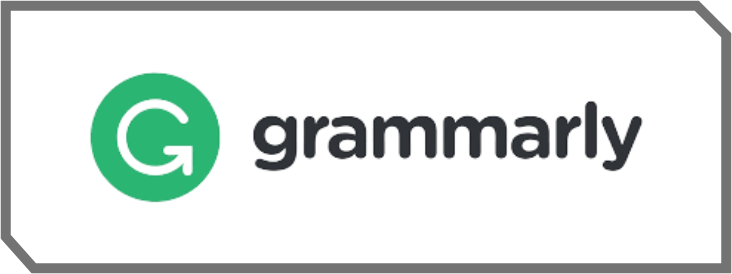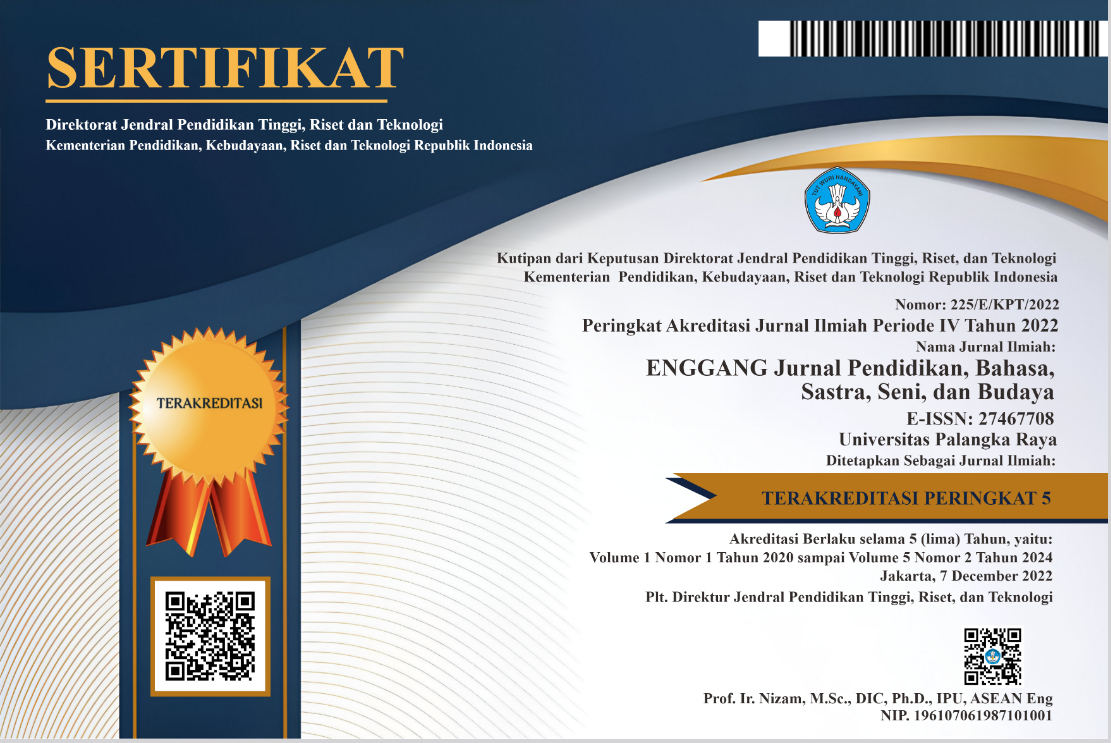RECOGNIZING LITERARY FORMULAS OF POP LITERATURE
DOI:
https://doi.org/10.37304/enggang.v3i1.8777Keywords:
opportunist, dictator, hypocriteAbstract
This research is to find out the characteristics of Napoleon in Animal Farm. This is a qualitative research project since the data collected is in the form of words rather than numbers. The data were collected in the novel Animal Farm as the primary source. The secondary sources, such as books, documents, and the internet, are used to support the analysis. An objective approach was applied in analyzing the data. The result shows Napoleon possessed certain characters, such as opportunist and dictator, who used hypocrisy, treachery, conspiracy, intimidation, and distortion as his means of achieving his goals. Napoleon uses his power to obtain his ambition. As a man, his ambition to indulge himself is reality, but more ambition is obtained in an unfair way that reflects Napoleon's experience of only destroying other animals. He uses his strength or his power to intimidate or hurt those who are weaker. Four pigs are killed on Napoleon’s order. Three hens were executed, as were a goose and some sheep.
Downloads
References
Abrams, M.H . 1962. The Mirror and The Lamp. New Jersey.
Bogdan and Biklen. 1997. Qualitative Research for Education: An
Introduction to Theory and Method . Second Edition. Boston: Allin and Bacon, Inc. Britanica Inc.
Cawelti, John G. Adventure Mystery and Romance. ASRC. New York: Library of
Congress Cataloging in Publiscation Data.
Griffith, K. Jr. 1982. Writing Essays About Literature. Washington: Harcout Brace
Jeve Novich.
Hudson, W. H. An Introduction to the Study of Literature. Second Edition. London: George Harrap and Co, Ltd.
Lerner, D.H. 1994. English Literature: An Interpretation for Stduents Abroad, London:
Wellek, R and Warren, A. A. 1956. Theory of Literature. New York:
A Harvest Book Harcourt, Brace & World, Inc. 1956.












